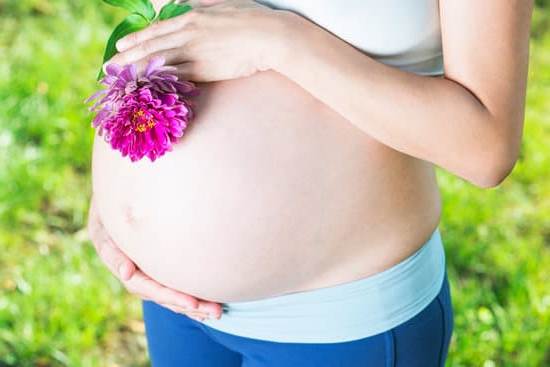When is the earliest to take a pregnancy test? This question often arises for individuals who are eager to find out if they are expecting. Timing is crucial when it comes to taking a pregnancy test, as testing too early may result in a false negative. Understanding the intricacies of the menstrual cycle and ovulation can help determine the best time to take a pregnancy test accurately.
The timing of taking a pregnancy test is closely intertwined with the menstrual cycle and ovulation. Ovulation typically occurs around two weeks before the next expected period. This means that if conception occurs during ovulation, it takes about 6-12 days for the fertilized egg to implant in the uterus and start producing hCG, the hormone detected by pregnancy tests. Testing too early before there is enough hCG in your system can lead to an inaccurate result.
Early signs and symptoms of pregnancy, such as missed periods, nausea, fatigue, and breast tenderness, may prompt individuals to take a pregnancy test sooner rather than later. However, it is essential to wait until after your missed period or at least one week after potential conception to ensure accurate results. Patience and understanding of your body’s natural processes play a significant role in determining when is the earliest to take a pregnancy test.
Understanding the Menstrual Cycle and Ovulation
In order to determine the earliest possible time to take a pregnancy test, it is crucial to have an understanding of the menstrual cycle and ovulation. The menstrual cycle typically lasts around 28 days, although it can vary from woman to woman.
Ovulation usually occurs around day 14 of the cycle, when a mature egg is released from the ovary and is ready to be fertilized by sperm. This fertile window, which includes the day of ovulation and a few days before, is when conception is most likely to occur.
It is important to note that sperm can survive in the female reproductive tract for up to five days, waiting for an egg to be released during ovulation. Therefore, if intercourse happens a few days before ovulation, there is still a chance of pregnancy. This information is essential when considering when to take a pregnancy test because it helps determine how early after possible conception the test may accurately detect pregnancy hormones in urine.
Given this information about the menstrual cycle and ovulation, it is recommended to wait at least until the first day of a missed period before taking a home pregnancy test for accurate results. Testing too early may result in a false negative due to low levels of hCG (human chorionic gonadotropin) hormone present in early pregnancy.
If you suspect you might be pregnant but get a negative result, wait a few more days and retest or consult with your healthcare provider for further guidance.
Early Signs and Symptoms of Pregnancy
Pregnancy can bring about a variety of early signs and symptoms that may indicate a woman is expecting. While these signs are not definitive proof of pregnancy, they can be a good indication for someone to consider taking a pregnancy test. Some common early signs of pregnancy include missed periods, breast tenderness, fatigue, nausea or vomiting (morning sickness), frequent urination, and mood swings.
It’s important to remember that every woman experiences pregnancy differently, so not all individuals may exhibit the same symptoms. Some women may notice these signs within a few weeks of conception while others may not experience any noticeable changes until later in their pregnancy. Knowing these early signs can help women stay aware of their body’s changes and prompt them to consider taking a pregnancy test at the appropriate time.
When is the earliest to take a pregnancy test? The most accurate results are obtained when the test is taken after a missed period, typically around one week after your menstrual cycle was supposed to start. However, some sensitive tests on the market claim to provide accurate results even before a missed period.
These early detection tests can be taken as early as 7-10 days post ovulation but keep in mind that the accuracy may vary depending on the brand and individual factors such as hormone levels. Always read the instructions carefully and consult with your healthcare provider if you have any questions or concerns about when to take a pregnancy test.
| Early Sign/Symptom | Timing of Occurrence |
|---|---|
| Missed Periods | Within one week after expected period |
| Breast Tenderness | Can occur as early as two weeks post conception |
| Nausea/Morning Sickness | Typically starts around six weeks into pregnancy |
When Is the Earliest to Take a Pregnancy Test
The earliest you can take a pregnancy test is crucial in determining its accuracy and reliability. Many women may be eager to find out if they are pregnant as soon as possible, but timing plays a significant role in getting an accurate result. Understanding the menstrual cycle, ovulation, and early signs of pregnancy can help determine when it is best to take a pregnancy test.
Menstrual Cycle and Ovulation
The menstrual cycle typically lasts for about 28 days, with ovulation occurring around day 14. If an egg is fertilized by sperm during ovulation, it implants in the uterus and the body starts producing hCG (human chorionic gonadotropin) hormone, which is what pregnancy tests detect.
It takes time for hCG levels to build up enough to be detected by a pregnancy test. Therefore, waiting until after a missed period or at least 10-14 days after suspected conception can increase the accuracy of the test.
Early Signs and Symptoms of Pregnancy
While some women may experience early signs and symptoms of pregnancy even before missing a period, such as nausea, fatigue, breast tenderness, or frequent urination, these symptoms are not always reliable indicators of pregnancy. Taking a pregnancy test too early may result in a false negative due to low levels of hCG being present in the body. It is advised to wait until closer to when your period is due or afterwards for more accurate results.
Finding the Right Timing
For the most accurate results, it is recommended to take a home pregnancy test first thing in the morning when your urine is most concentrated with hCG. This can help increase the chances of detecting any early signs of pregnancy.
If you suspect you might be pregnant but receive a negative result on an early test, it’s advisable to wait a few more days and retest or consult with your healthcare provider for further guidance on timing for optimal results.
Types of Pregnancy Tests Available
Types of Pregnancy Tests
There are two main types of pregnancy tests available in the market: urine tests and blood tests. Urine tests, which can be done at home with over-the-counter kits, detect the presence of hCG (human chorionic gonadotropin) in the urine.
These tests are convenient, cost-effective, and easy to use. On the other hand, blood tests, which are performed at a doctor’s office or clinic, measure the levels of hCG in the blood and can provide more accurate results.
Over-the-Counter Pregnancy Tests
Over-the-counter pregnancy tests are widely available at pharmacies and convenience stores. These tests typically come with instructions on how to use them properly. Most home pregnancy tests recommend testing first thing in the morning when hCG levels are more concentrated in urine. Some brands claim to provide accurate results as early as a few days before a missed period.
Doctor-Administered Blood Tests
Blood tests for pregnancy, commonly known as quantitative beta hCG blood tests, can detect pregnancy earlier than urine tests. These tests measure the exact amount of hCG in the blood and can confirm pregnancy as early as 7-12 days after conception. While these may be more accurate than urine tests, they require a visit to a healthcare provider and often take longer to get results compared to home pregnancy tests.
Factors Affecting the Accuracy of Pregnancy Tests
When it comes to taking a pregnancy test, timing is crucial to ensure accurate results. Understanding the factors that can affect the accuracy of these tests is essential for women who are eager to confirm whether they are pregnant or not. Here we will delve into the various elements that play a role in determining how reliable a pregnancy test result can be.
1. Time of Testing: One of the primary factors influencing the accuracy of a pregnancy test is the timing of when it is taken in relation to ovulation and implantation. Pregnancy tests detect the hormone hCG, which is produced by the developing embryo after implantation in the uterus.
Taking a test too early, before there is enough hCG present in the body, can result in a false negative result. It is recommended to wait at least one week after a missed period to take a pregnancy test for more reliable results.
2. Sensitivity of the Test: Different pregnancy tests have varying levels of sensitivity in detecting hCG levels. Some tests can detect lower levels of hCG earlier than others, increasing their accuracy at detecting pregnancy sooner. It is important to choose a test with high sensitivity if you want to determine pregnancy early on.
3. Proper Usage: Following the instructions provided with the pregnancy test kit is crucial for accurate results. Improper usage, such as testing at the wrong time of day or not providing enough urine on the test stick, can lead to inaccurate readings. It is vital to carefully read and adhere to all instructions when taking a pregnancy test for optimal accuracy.
By considering these factors affecting the accuracy of pregnancy tests, women can make informed decisions about when and how to take a test for reliable results. Remember that patience and following guidelines are key in ensuring an accurate outcome when determining whether you are pregnant or not”.
What to Do if You Get a Negative Result
Receiving a negative result on a pregnancy test can be disappointing and disheartening, especially if you were hoping for a positive outcome. However, it is essential to remain calm and understand that there are various factors that could contribute to a false-negative result. Here are some steps to take if you receive a negative result on your pregnancy test:
- Check the Timing: One of the most common reasons for a false-negative pregnancy test is taking the test too early in your cycle. It is recommended to wait at least one week after your missed period to take a home pregnancy test for accurate results.
- Retest: If you receive a negative result but still suspect you may be pregnant, consider retesting in a few days or consulting with your healthcare provider for further testing.
- Consider Other Factors: Certain medications, medical conditions, and improper testing techniques can also lead to inaccurate results. Make sure to follow the instructions provided with the pregnancy test carefully and consult with a healthcare professional if needed.
Remember that receiving a negative result does not necessarily mean you are not pregnant. It is essential to stay informed, patient, and seek guidance from healthcare professionals if needed. Additionally, support from family members or friends can help navigate through this emotional time and provide comfort during the waiting period before retesting or seeking further medical advice.
Success Stories of Women Who Took Early Pregnancy Tests
Many women anxiously await confirmation of their pregnancy, often leading them to take early pregnancy tests in hopes of getting a positive result. However, the question remains: when is the earliest to take a pregnancy test? The answer lies in understanding the menstrual cycle and ovulation process.
Typically, a woman’s menstrual cycle is around 28 days, with ovulation occurring around day 14. This means that the earliest time to take a pregnancy test would be around 10-14 days after ovulation.
For some women, early signs and symptoms of pregnancy may prompt them to take a test sooner than recommended. These symptoms can vary from person to person but may include fatigue, breast tenderness, nausea, and frequent urination. While these signs can be promising, it is important to note that they are not definitive proof of pregnancy. Therefore, taking a pregnancy test at the right time is crucial for accurate results.
Success stories of women who took early pregnancy tests often highlight the emotional rollercoaster involved in waiting for those two telling lines or symbols to appear on the test. Some women have reported receiving positive results as early as 7-10 days past ovulation, while others have had to wait until closer to when their period was due. Regardless of when they tested, these stories emphasize the importance of patience and guidance throughout the testing process.
Conclusion
In conclusion, the timing of when to take a pregnancy test can significantly impact the accuracy of the results. Understanding your menstrual cycle and ovulation is crucial in determining the earliest possible time to take a pregnancy test. By recognizing the early signs and symptoms of pregnancy, you can better gauge when it is appropriate to test.
It is essential to remember that different types of pregnancy tests are available, each with varying levels of sensitivity. Factors such as the concentration of hCG in your urine and the time of day can affect the accuracy of these tests. Therefore, it is recommended to follow the instructions carefully and consult a healthcare provider if needed.
Overall, patience and guidance play a vital role in the pregnancy testing process. While it may be tempting to take a test as soon as possible, waiting for the right time can lead to more reliable results.
Remember that every woman’s body is unique, so it’s essential to trust your instincts and seek support from healthcare professionals when necessary. Ultimately, taking a pregnancy test at the right time can provide clarity and peace of mind during this significant moment in your life.
Frequently Asked Questions
How Soon Will a Pregnancy Test Read Positive?
A pregnancy test can typically read positive as early as 7-10 days after conception, although it may vary depending on the sensitivity of the test used. It’s important to follow the instructions carefully for accurate results.
What’s the Earliest You Can Take a Pregnancy Test?
The earliest you can take a pregnancy test is usually around 7-10 days after ovulation or conception. Some early result tests claim they can detect pregnancy even before a missed period, but it’s advisable to wait for more accurate results.
Can I Take a Pregnancy Test After 5 Days?
Taking a pregnancy test after just 5 days may be too early to detect a pregnancy accurately. It’s best to wait until closer to when your period is due for more reliable results, which typically ranges from 7-10 days post-conception or later.

Welcome to my fertility blog. This is a space where I will be sharing my experiences as I navigate through the world of fertility treatments, as well as provide information and resources about fertility and pregnancy.





